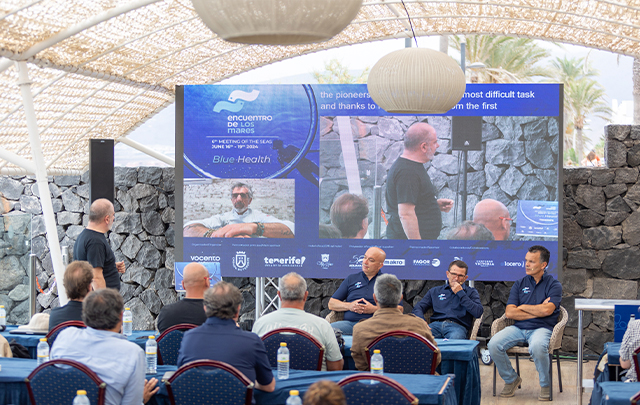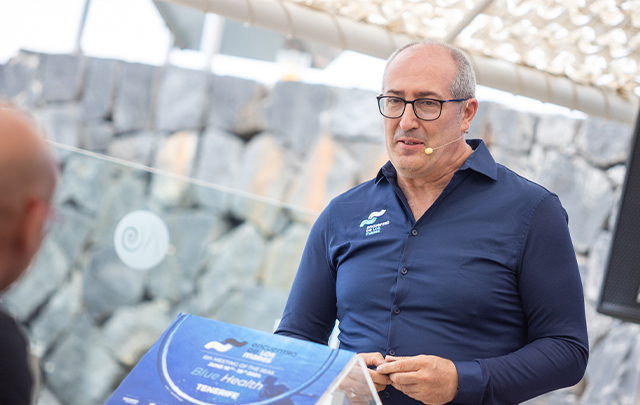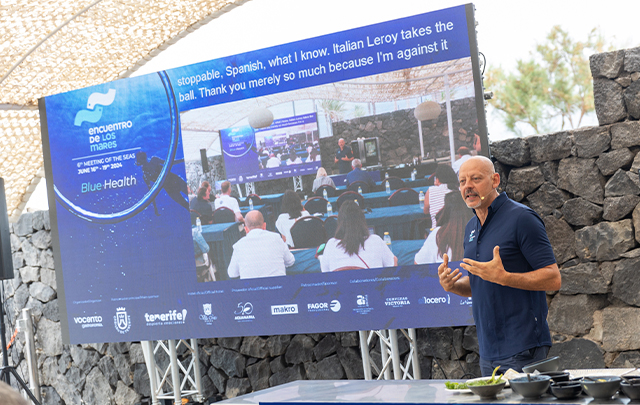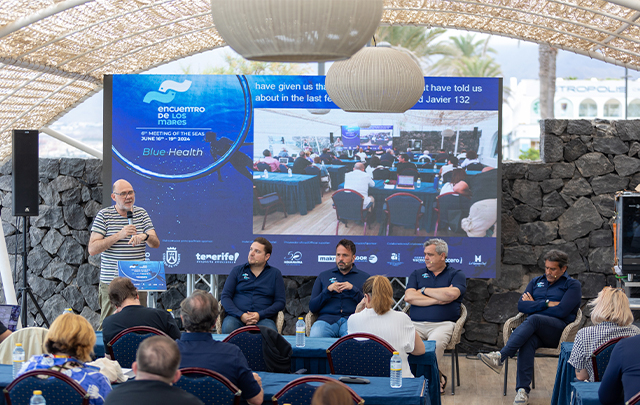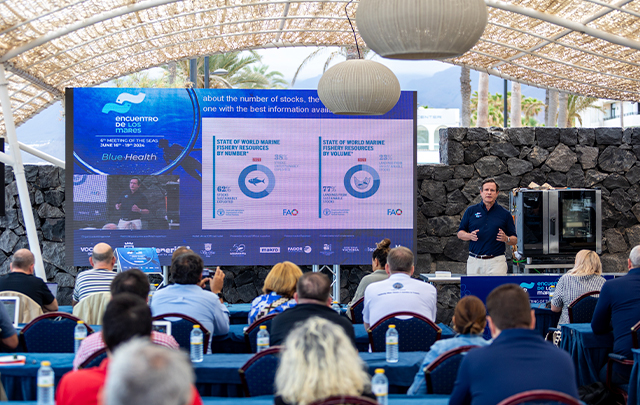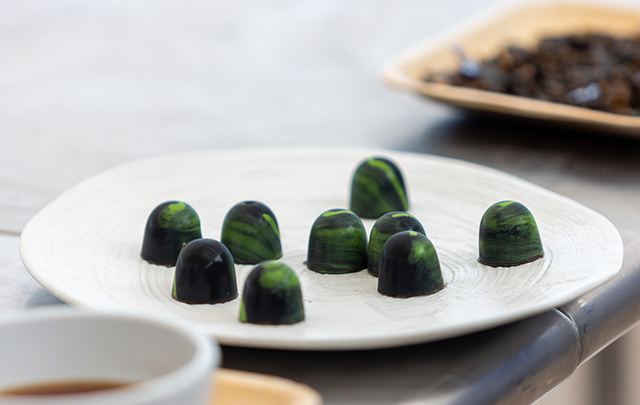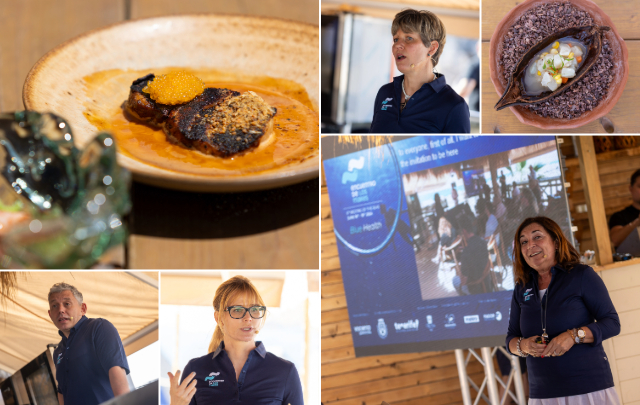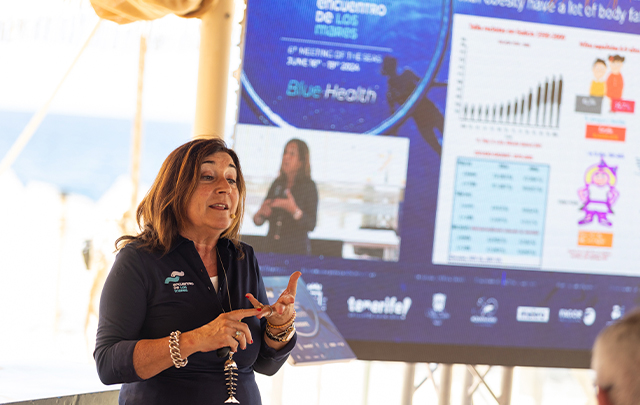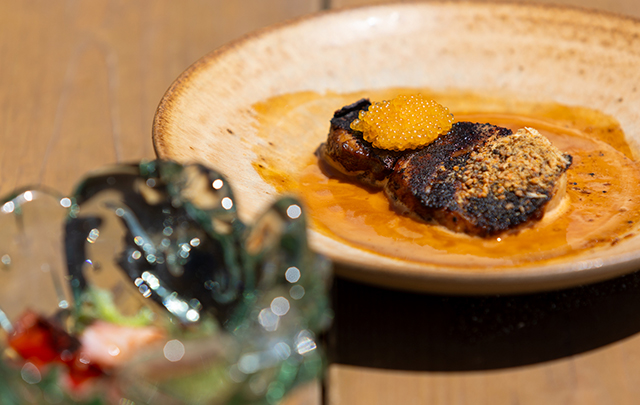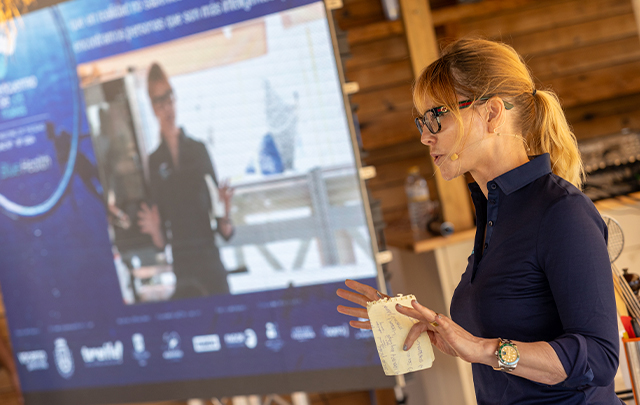News
The 6th Meeting of the Seas concludes that we have a responsibility to increase fish consumption to improve our health while restoring the health of the seas
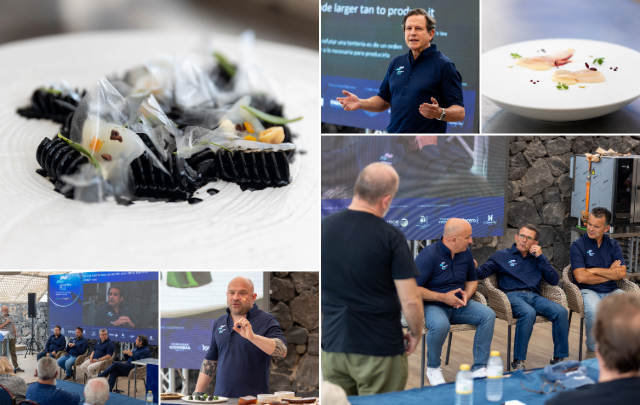
The sixth edition of the Encuentro de los Mares (Meeting of the Seas) has come to an end after an interesting day in which a wide range of topics related to fish were discussed, from the effects of climate change on fish to the curing process and the urgent need to increase consumption in order to reconnect people with the sea and improve their physical and mental health. It also highlighted the synergies that have emerged from the same forum, which are already helping to improve fishing techniques on the island. They also discussed how and to what extent we should protect the seas. All of these topics were approached from different angles, with positions sometimes very far apart between science and fishing, giving the Congress a multifaceted view of the oceans and their future.
And with the satisfaction that comes from putting words into action, Benjamín Lana, General Manager of Vocento Gastronomía, expressed his satisfaction at the closing ceremony of this congress: "It's exciting to see how this conference has the real capacity to change things, a small grain of sand". He described this edition as "one of the most nutritious" and "with many fundamental issues" and, after reviewing some of the most interesting reflections of these days, he said that "to start working together, we must assume that we have the responsibility and the capacity to reverse the damage caused to the oceans".
He also stressed the need to "go back to eating fish in this part of the world and doing things right so that it can be eaten in other places, because fish has no passport, it belongs to the world". Lana invited the participants to meet again in a year's time, in the hope that this year, too, synergies will have been created between them.
Valentín González, Councillor for the Primary Sector and Animal Welfare of the Island Council of Tenerife, took up the baton and called for a new edition of the Encuentro de los Mares to be held in Tenerife. A congress that, in the words of the Councillor himself, "will make the island's fishing sector visible and known". And which is at the same time an important challenge and an opportunity for Tenerife".
On consumption and "falling in love again"
The beneficial effects of seafood on our health and the cognitive development of our young people was one of the recurring themes of this sixth edition of the Multidisciplinary Congress of the Sea. The need to increase their consumption has therefore become a priority for many of this year's participants.
On the third and final day of the congress, this was the subject of a round table discussion chaired by Toni Massanés, director general of the Fundació Alícia, with four protagonists: Chema León, marketing director at Makro; Ignacio Solana, chef at the Solana* restaurant in Ampuero (Cantabria); José Álvarez, chef at the La Costa* restaurant in El Ejido (Almería); and Antonio Nieto, director of Pesca España. It has been said that its consumption does not depend on taste, because fish is liked; it is clear that it is part of our cuisine, although nowadays it lacks a certain culture, especially when it comes to cooking; and it offers us a great variety of species, but we rarely leave our comfort zone... So what is the conclusion? Nieto has given it: "We have to make consumers fall in love with fish again. We need to promote and communicate. We have to be where young people are, on social networks, we have to influence the messages at a time when simplicity is valued. We have to communicate effectively.
One way to revive consumption is to debunk myths, and this is what Javier Garat, President of the International Fishing Shipowners' Coalition and President of the Spanish Maritime Cluster, focused on in his presentation. Without ignoring the fact that there are figures showing that consumption has fallen by 32% in the last ten years, he avoided catastrophism and even spoke of positive figures in many areas of fishing. Garat took the opportunity to present Pesca España's initiatives to promote seafood consumption, with the aim of halting the decline in household consumption.
The world sends us warnings
After a 30-hour flight, chef Alberto Lozano has arrived from the Arctic. On the islands of the Svalbard archipelago in Norway, he is the first to feel the effects of climate change. They know that the island they live on will split in two when the glacier that connects the two parts disappears in 2050, but they also know that this will cause changes in currents and migrations, something that is already happening. He spoke of the hidden enemy of flame retardants, of birds no longer fertilising their fields because they follow the plankton, and warned that although they may notice the changes there first, they will come here because "in this we are one". Lozano also presented different preparations with seals, "our Arctic pig".
Chef Gianfranco Pascucci also talked about environmental threats, in this case those threatening the Tyrrhenian Sea. He did this by putting them on his plate, much to the delight of the audience. The chef of the prestigious Pascucci al Porticciolo* in Fuimicino (Rome) is a true master of seafood cuisine and is in close contact with fishermen. After listening to them and understanding the dangers facing marine species today, he was inspired to create his 'Plastic Sea' dish, based on al dente fusilli pasta sautéed with cuttlefish butter, under thin slices of cuttlefish, marinade and squid ink.
Sea bass enzymes
One of the lectures on the last day of the Encuentro de los Mares was given by the chef Diego Schattenhofer (Taste 1973*, Tenerife) and the scientist from the Canary Islands Oceanographic Centre, Jesús Arrieta. The latter was struck by certain aspects of the former's presentation last year, and both have been studying the marine enzyme process, specifically that of sea bass, for several months. They have come to some interesting conclusions and have demonstrated, as those present were able to confirm, that a sea bass that has been in the chamber for 60 days is safe to eat. "We will continue to experiment with other wild fish and, if all goes well, we would like this process to become another conservation technique. That is our dream," said Arrieta, as Schattenhofer prepared several recipes to take the enzyme from theory to plate.
The link between Tenerife and Santa Uxía
The last round table of the congress was chaired by Benjamín Lana, with the participation of Roberto Rodríguez, manager of Artesáns da Pesca, the Galician chef Pepe Solla (Casa Solla*, Poio, Pontevedra), the gastronomic consultant Juan Carlos Clemente and Manuel Díaz Marcelino, captain of the fishing guild of the Los Cristianos wharf (Arona, Tenerife). This round table discussion focused on how fishermen and chefs from Tenerife travelled to the estuaries of Arosa and Vigo to understand the excellent treatment of fish in Galicia, an experience that has been included in a documentary film ('From Tenerife to Santa Uxía de Ribeira: 945 nautical miles of collaboration') promoted by the Encuentro de los Mares (Meeting of the Seas). This collaboration between Galicia and Tenerife is the result of the synergies created at the last edition of the Meeting of the Seas, which aroused the interest of the islanders in improving their fishing practices.
Pepe Solla defended the need for a very close relationship between supplier and chef, but also highlighted one of the keys to these meetings, which is nothing less than the sharing of knowledge: "Secrecy only impoverishes you". This is a thought that will undoubtedly be echoed by those attending the Gastronomic Forum, which this year has once again succeeded in creating synergies between the marine world and health.

